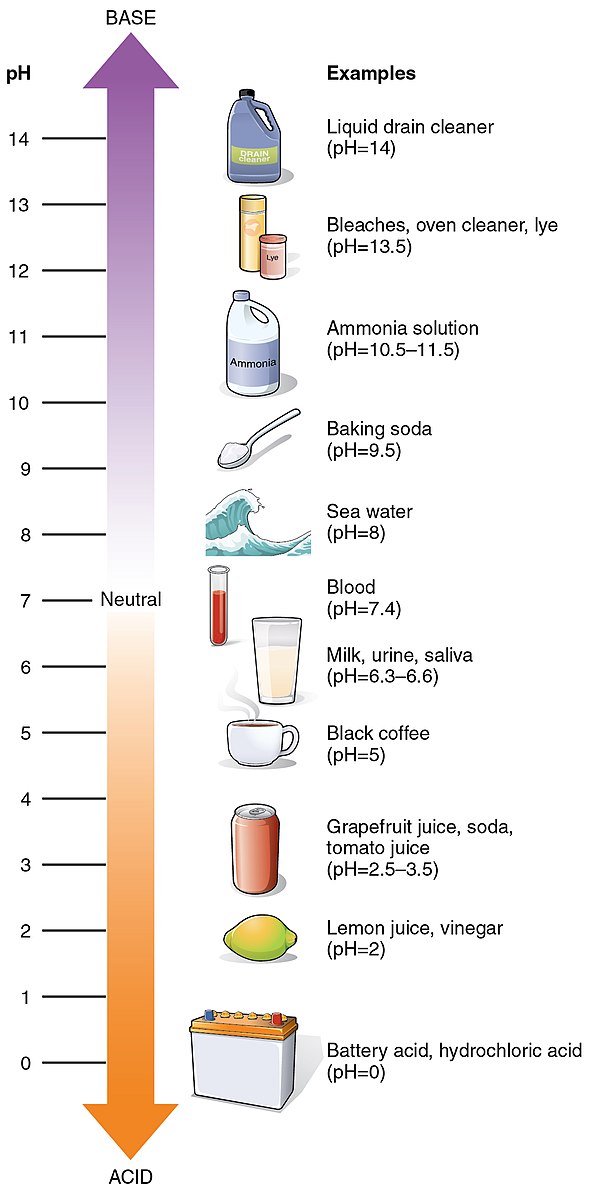The pH of a buffer solution remains relatively constant when water is added due to the presence of conjugate acid-base pairs that counteract the effects of any added acid or base. This is because the Henderson-Hasselbalch equation, which calculates the pH of a buffer, includes both the acid and base concentrations in the numerator and denominator. When water is added, both the acid and base concentrations are diluted equally, causing the ratio to remain constant and the pH to stay the same.
Understanding the Henderson-Hasselbalch Equation
The Henderson-Hasselbalch equation is used to calculate the pH of a buffer solution and is given by the following formula:
pH = pKa + log([A-]/[HA])
Where:
– pH is the pH of the buffer solution
– pKa is the negative logarithm of the acid dissociation constant (Ka) of the weak acid in the buffer
– [A-] is the concentration of the conjugate base
– [HA] is the concentration of the weak acid
When water is added to a buffer solution, both the [A-] and [HA] terms in the equation are diluted equally, causing the ratio [A-]/[HA] to remain constant. As a result, the pH of the buffer solution remains unchanged.
Factors Affecting the pH of a Buffer After Adding Water
 Image source: OpenStax College
Image source: OpenStax College
While the pH of a buffer solution generally remains constant after adding water, there are a few factors that can affect the pH:
-
Dilution: If the buffer solution becomes too dilute, the concentrations of the acid and base may become too low to effectively counteract the addition of acid or base. In this case, the pH may start to change and tend towards 7, which is the pH of pure water.
-
Contaminants and Chemicals: If a strong acid or base is added to the buffer, it can react with the acid or base in the buffer and change the pH. Additionally, impurities or contaminants in the water used to dilute the buffer can also affect the pH.
-
Temperature: The pH of a buffer solution can also be affected by changes in temperature, as the acid dissociation constant (Ka) can vary with temperature.
Maintaining the pH of a Buffer After Adding Water
To maintain the pH of a buffer solution after adding water, it is important to:
-
Use High-Purity Water: Ensure that the water used to dilute the buffer is of high purity and free of any contaminants that could affect the pH.
-
Carefully Control Additions: Carefully control the addition of any acid or base to the buffer to avoid disrupting the pH.
-
Monitor the pH Regularly: Regularly monitor the pH of the buffer solution using a pH meter or litmus paper and adjust as necessary to maintain the desired pH.
-
Avoid Excessive Dilution: Avoid diluting the buffer solution too much, as this can reduce the effectiveness of the buffer and cause the pH to change.
Home Remedies for Adjusting the pH of a Buffer
If the pH of a buffer solution has drifted from the desired value, there are several home remedies that can be used to adjust it:
-
Adding Acid or Base: Adding a small amount of a weak acid or base to the buffer can help adjust the pH.
-
Using a pH Meter or Litmus Paper: Regularly monitoring the pH of the buffer using a pH meter or litmus paper can help ensure that the buffer remains at the desired pH.
-
Adjusting the Ratio of Acid to Base: Changing the ratio of the acid to base in the buffer can also help adjust the pH.
By understanding the principles behind the pH of a buffer after adding water and following best practices for maintaining the pH, you can ensure that your buffer solutions remain effective and reliable.
References:
- Quora. (n.d.). Why does diluting buffer with water not change its pH? Retrieved from https://www.quora.com/Why-does-diluting-bu
- YouTube. (2022, January 21). What is the Effect of Adding Water on the pH of a Buffer? Retrieved from https://www.youtube.com/watch?v=m9JwADwpj5I
- The Student Room. (n.d.). Why does adding water to a buffer solution not change its pH? Retrieved from https://www.thestudentroom.co.uk/showthread.php?t=5684668
- Purdue University. (n.d.). Buffers. Retrieved from https://www.chem.purdue.edu/gchelp/howtosolveit/Equilibrium/Buffers.htm
- Mr Khemistry. (2019, November 10). Diluting buffer solutions – what effects will it have on pH? Retrieved from https://mrkhemistry.com/dilution-of-buffer-solutions/
- Chemistry Stack Exchange. (2016, September 7). Does dilution of a buffer affect pH? Retrieved from https://chemistry.stackexchange.com/questions/58607/does-dilution-of-a-buffer-affect-ph
